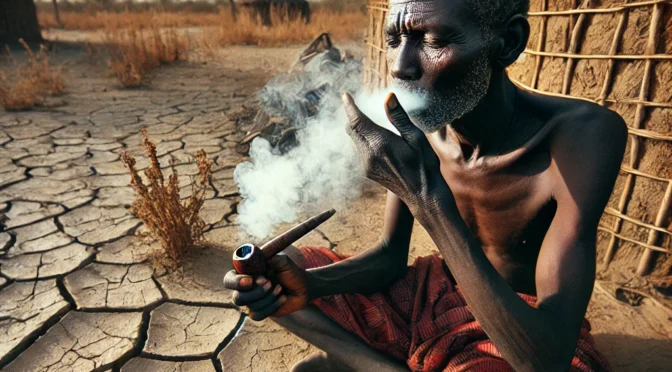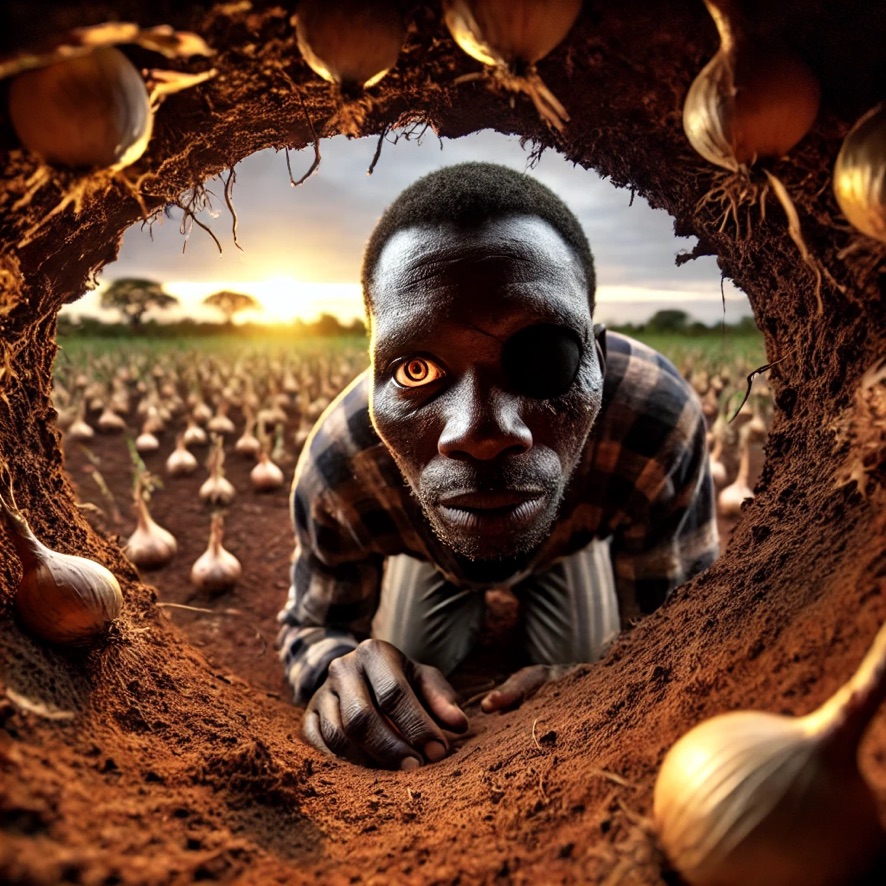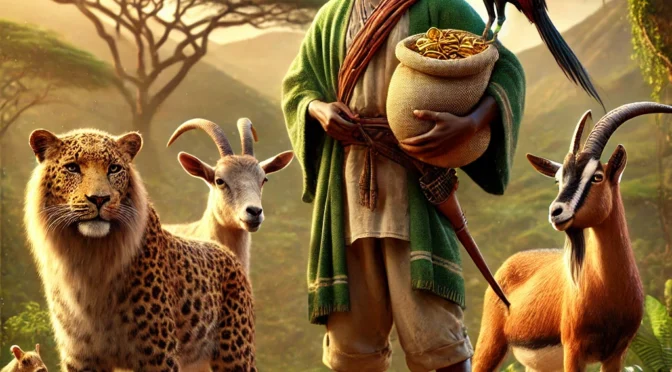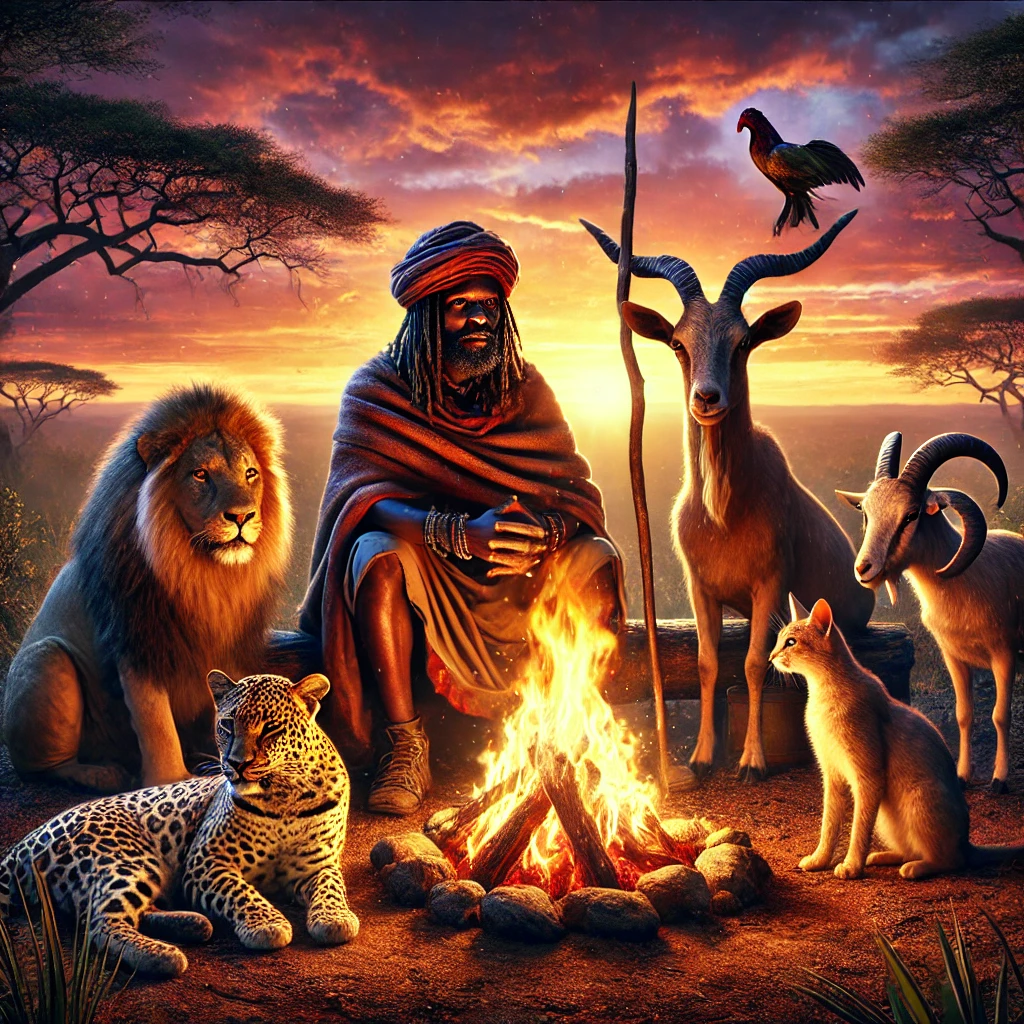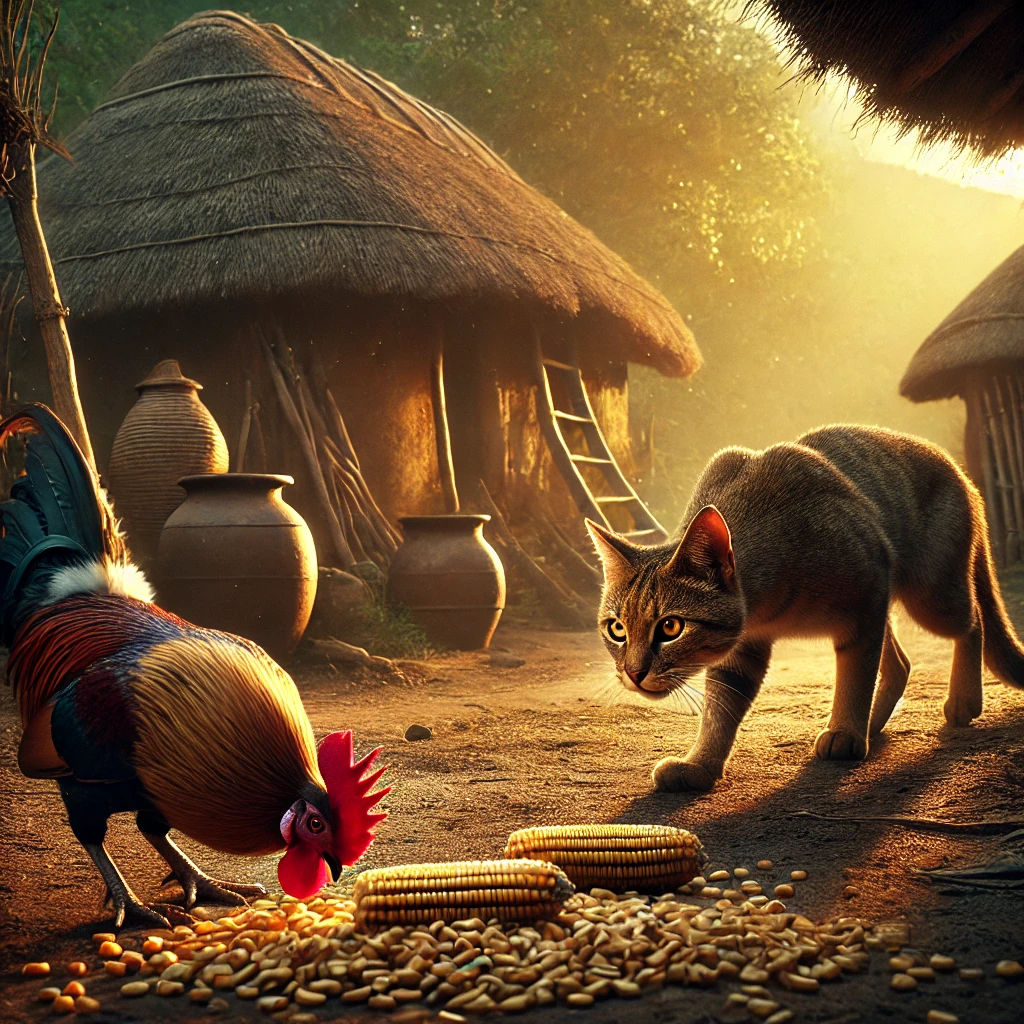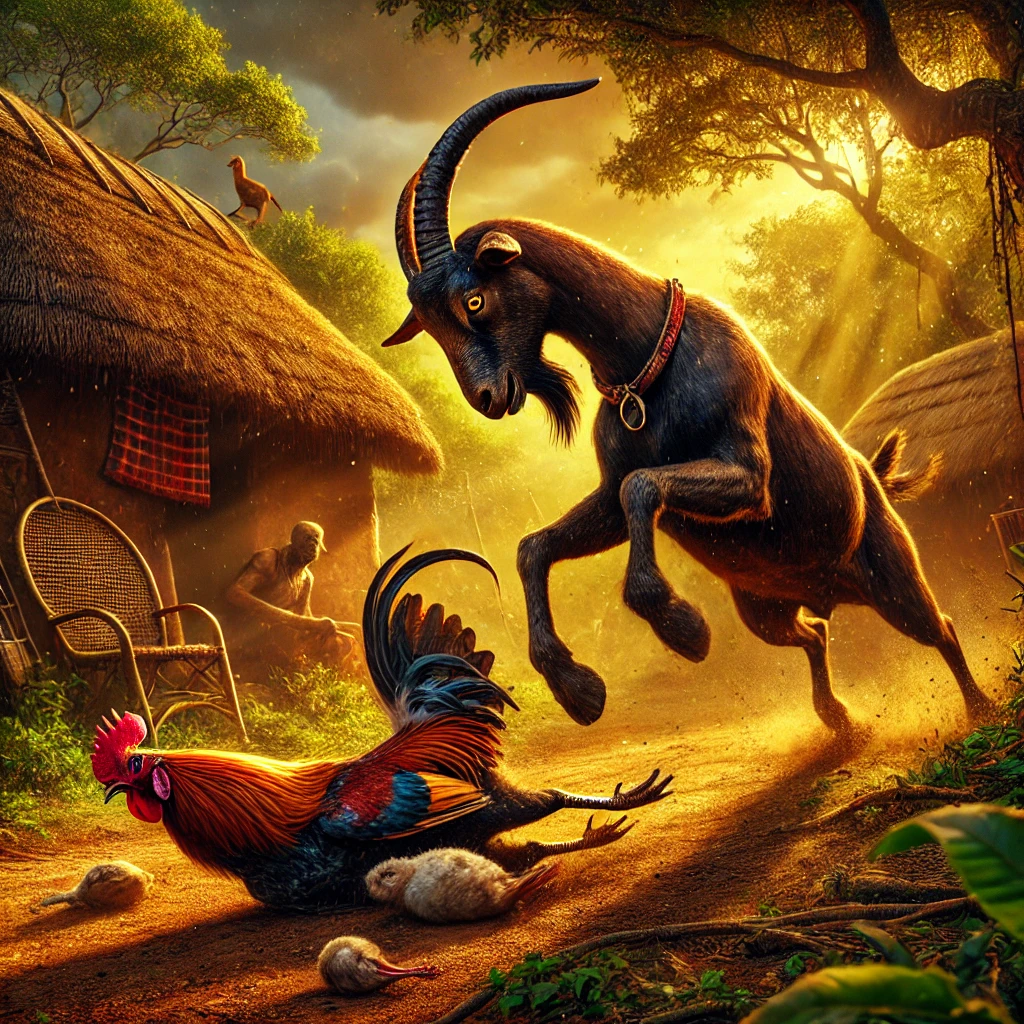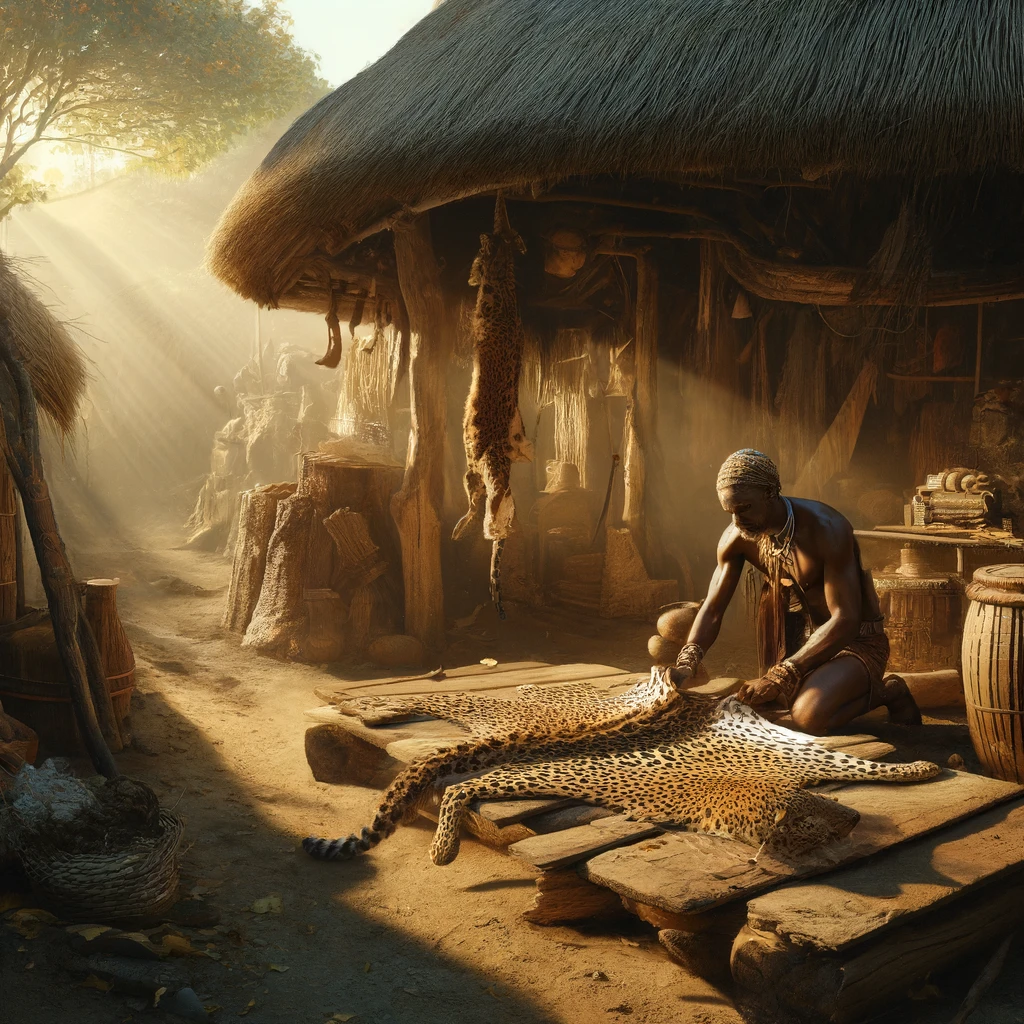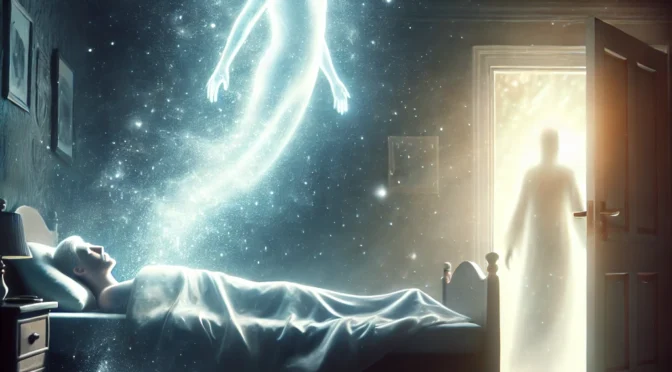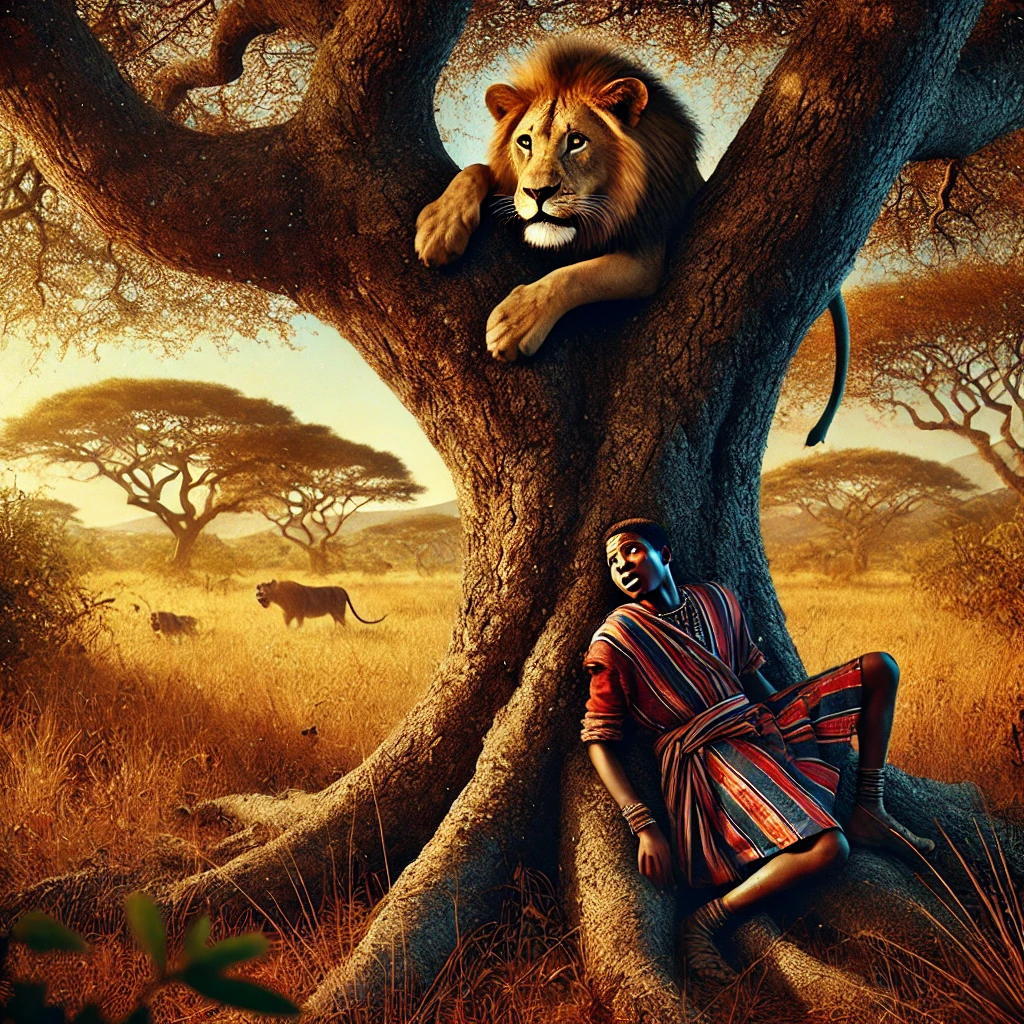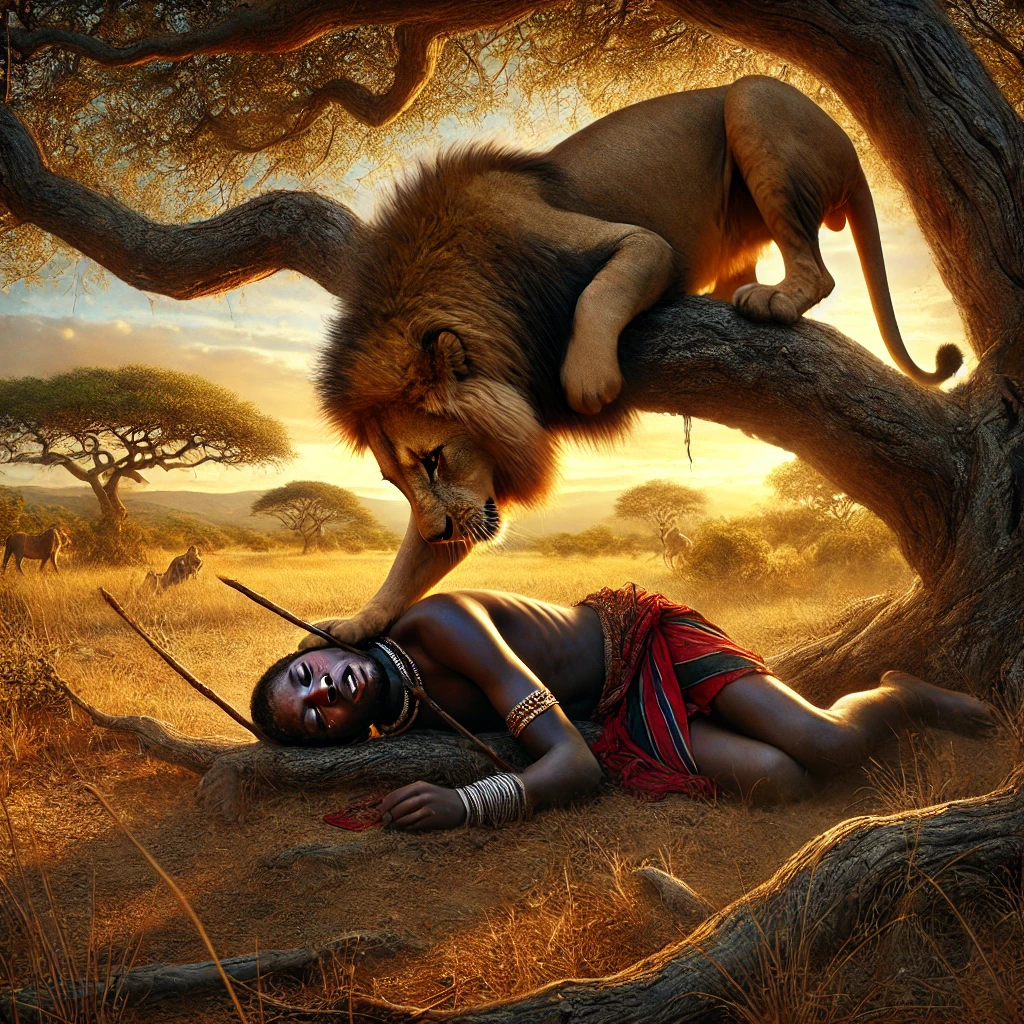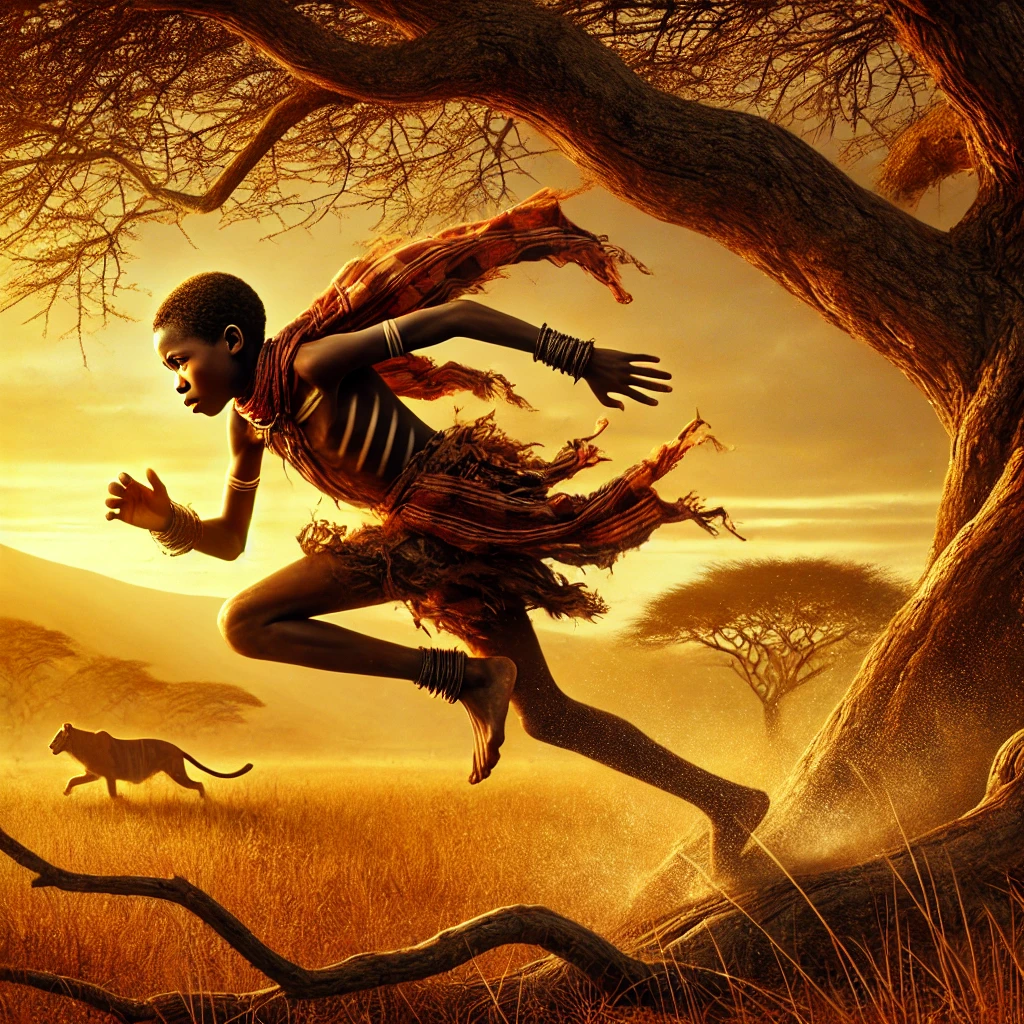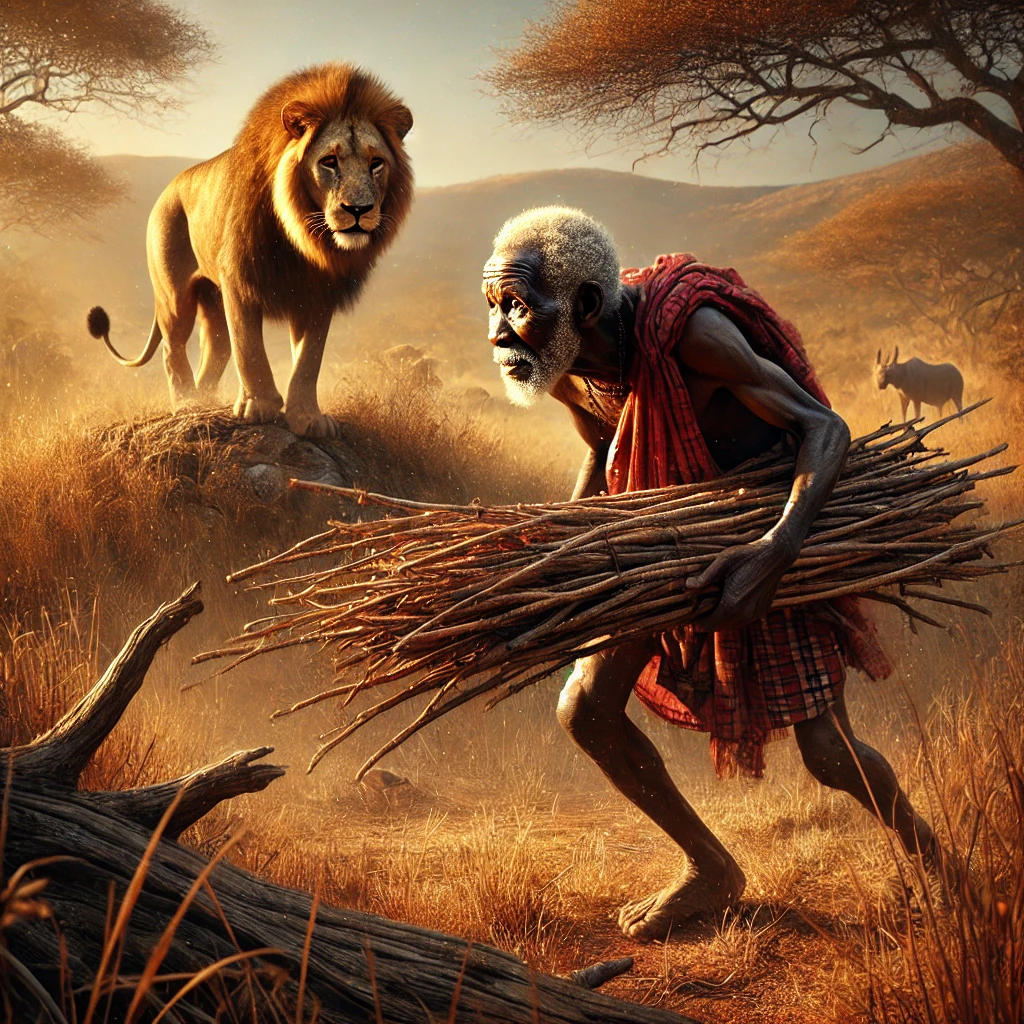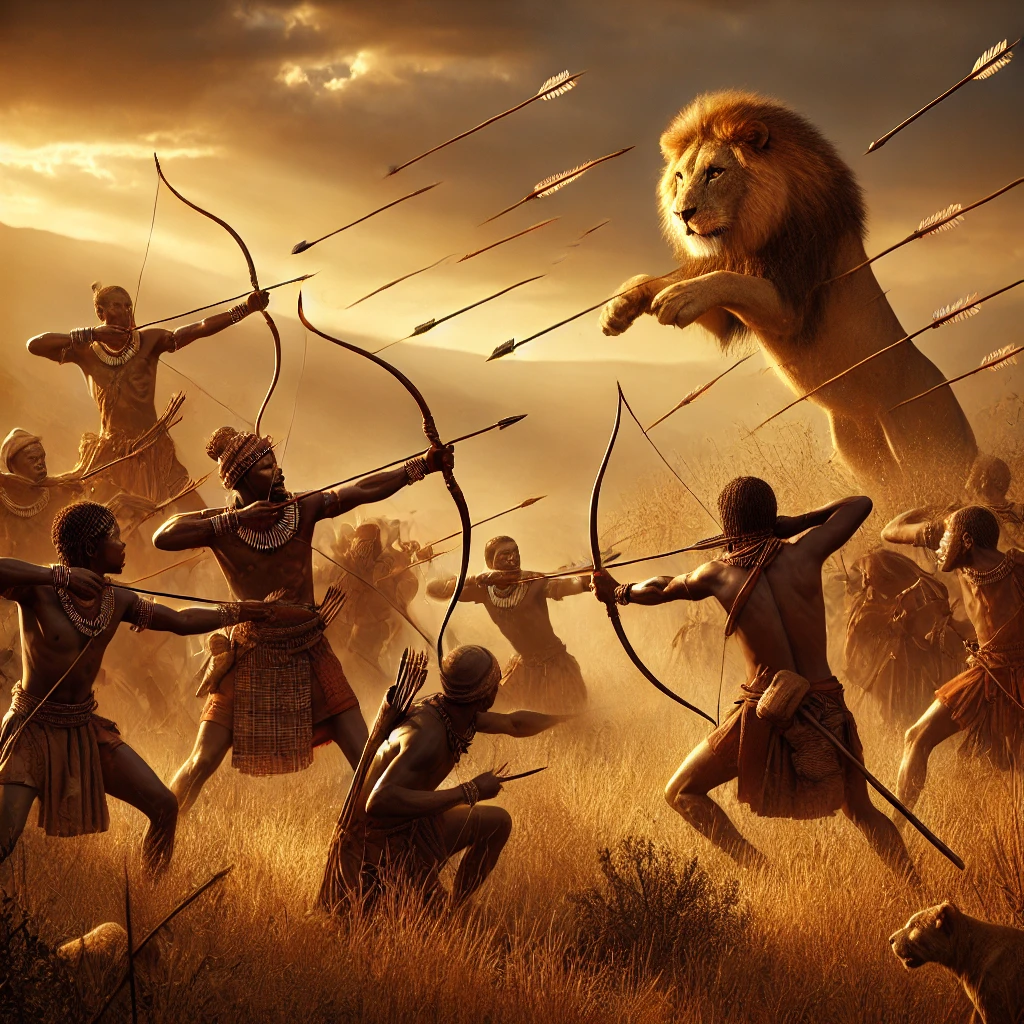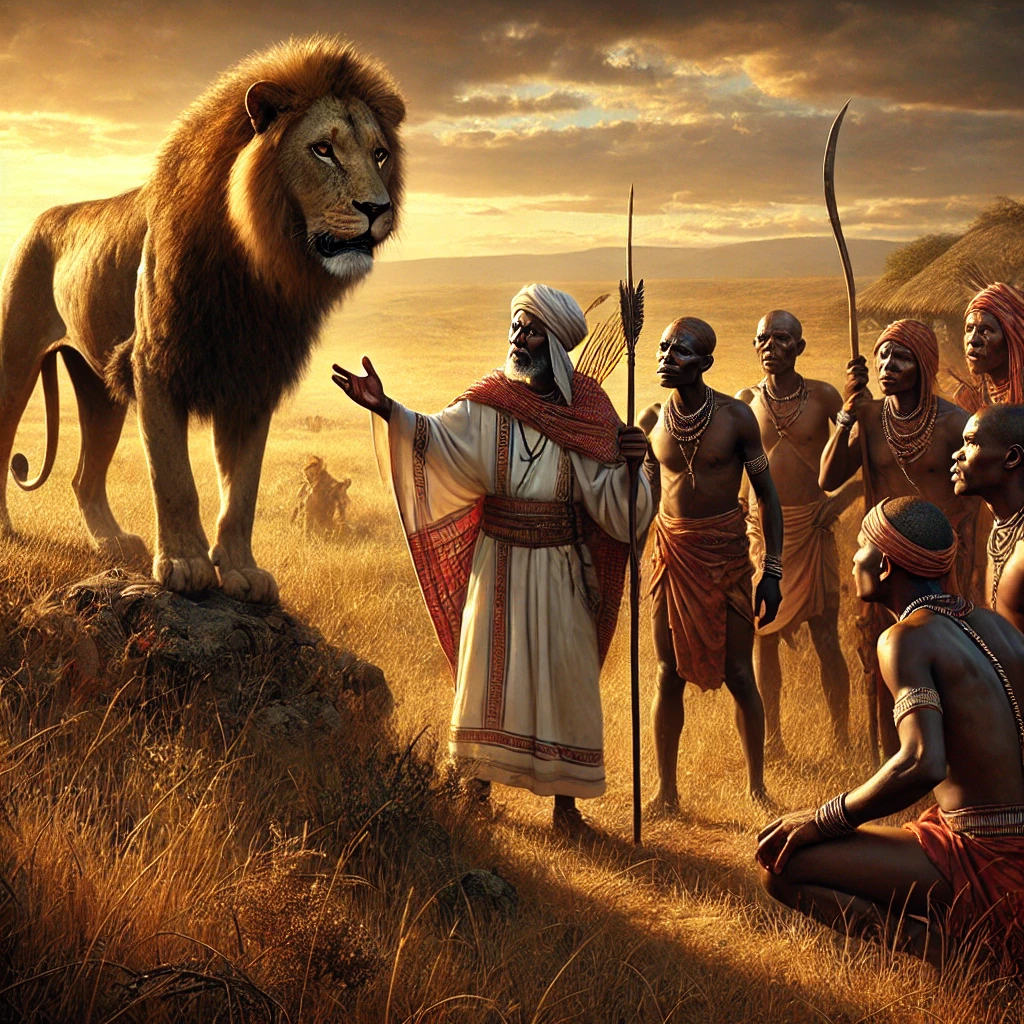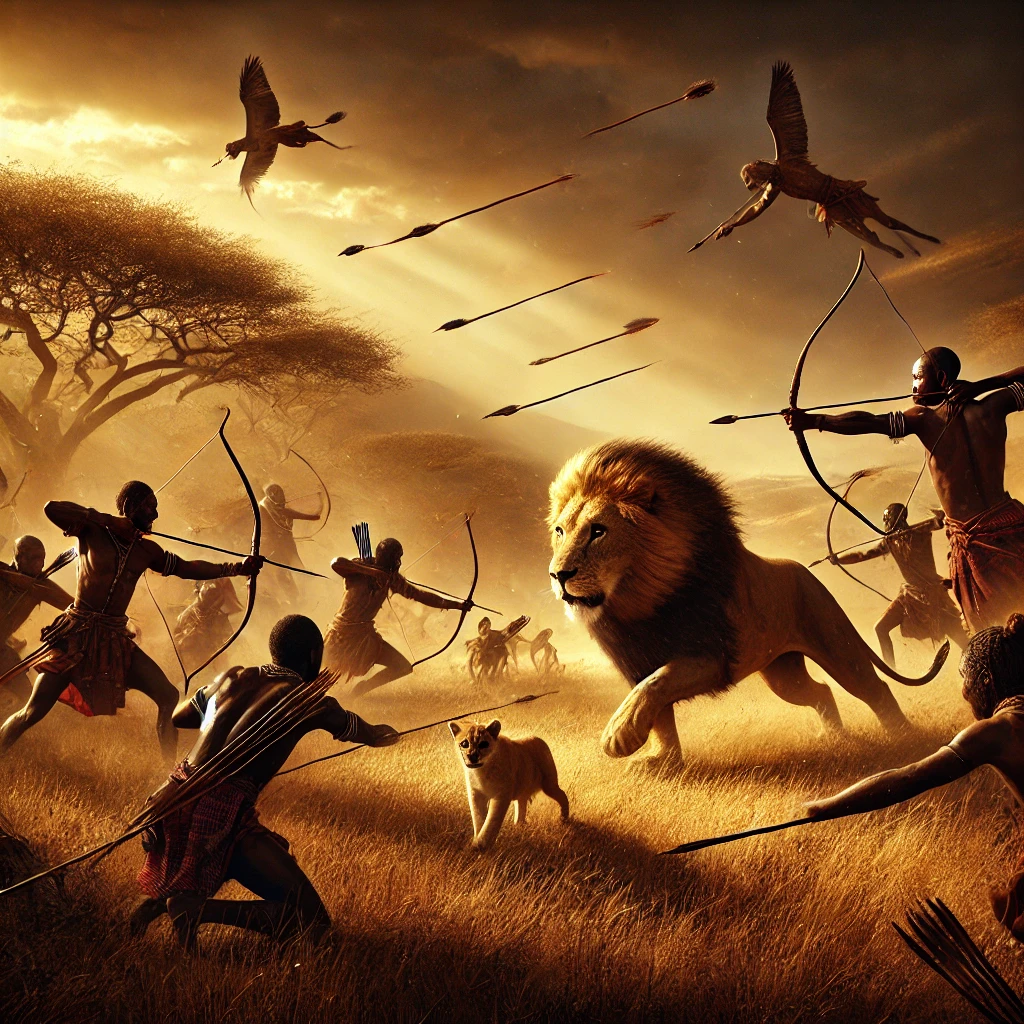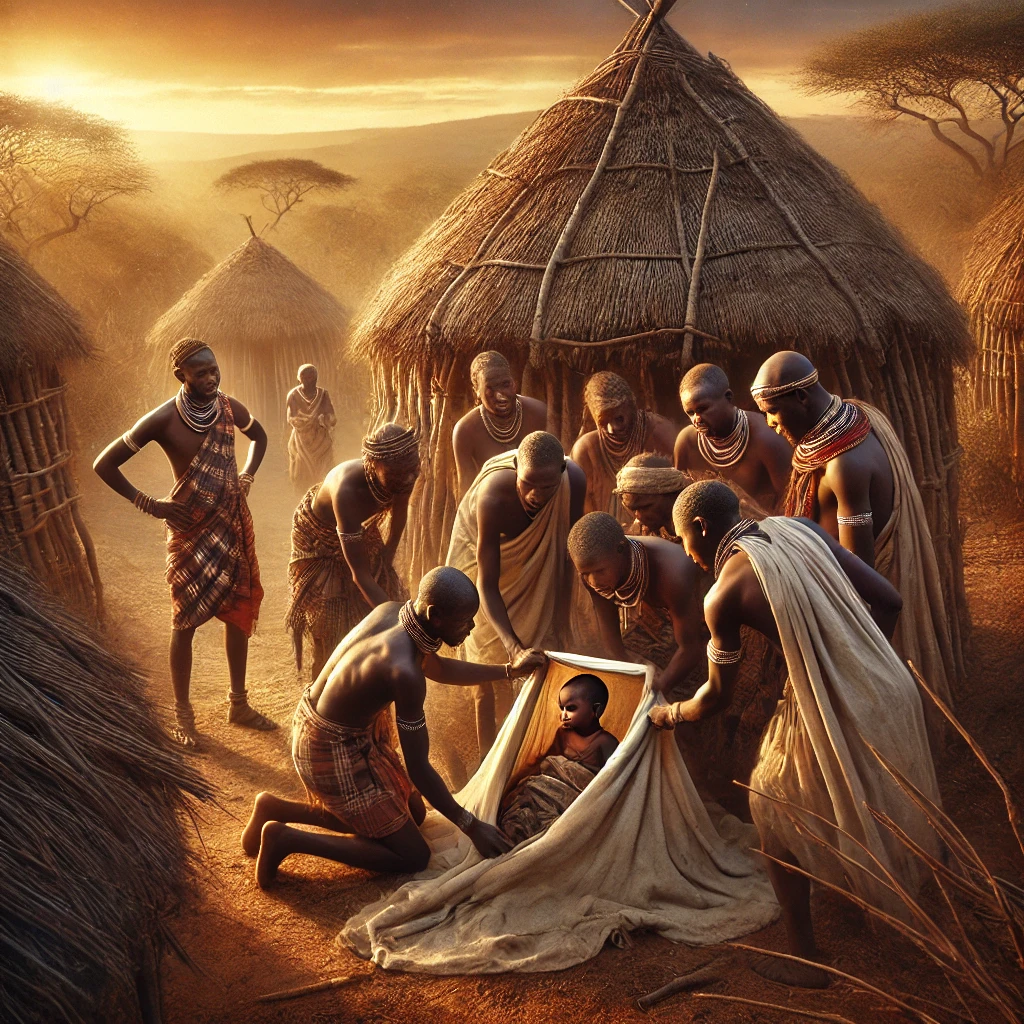THERE ONCE LIVED a man named Battuda, the weed smoker. One year there was s serve drought, and the weed did not grow. He said to his children, “What am I to do? I have no weed.”
They answered, “If you wish it, send us that we may search for some.”

Thereupon he sent the eight sons and three daughters, and said, If you secure weed, leave the girls with the man from whom you got it.”
They walked for a long time, nearly two months, but they did not find weed. They said to each other, “As we have not found that which we seek, it is best that we return.”

On their return they met two men, wanderers, who asked them what they sought. “We seek weed. We were sent by our father who is in great need of it, and we fear he will be dead by now.”
The wanderers replied, “Very well. Come with us, and we will take you to a man who has lots of it.”

Thus they travelled together, and when they arrived at one man’s village they met his son, who asked, “What do you seek?”
They replied, “Weed.”
“Only weed?” he asked.
“Yes, indeed,” they replied.
“If it should be offered to you, what would you give for it?” he asked further.
They answered, “Father said to us if you find a man with weed, leave all the girls with him.”

The man who owned the weed, and who was also named Battuda, rejoiced when he heard this and killed a goat for them. The next morning he filled eight bags with weed and gave them to Battuda’s sons. He also sent his four sons and two daughters, and said to his sons, “When you come to the man who desires the weed and find that his village is a pleasant place, leave the two girls with him.”

When Battuda’s eight sons returned with the weed, he rejoiced and praised them for what they had done and killed a goat for them. They said, “The man from whom we got the weed has also sent his four sons and tow daughters to see your abode and whether it is a pleasant place.”
He replied, “It is well.”
The next morning the four sons returned to their home and left their two sisters ar Battuda’s village.
The two families thereafter became friends and visited each other.

Some time later, Battuda said, “I am old. Take me to my friend that I may see before I die.” To this his children agreed. They went ahead, and he followed, until they arrived at Battuda’s village.
When Battuda heard the greetings and clapping of hands, he asked, “Whom is it you greet?”
One of his sons said, “It is the father of the girls who were left here – he who sought weed.”

He answered, “I am ashamed to meet him, as I married his daughters before I met him. Go and tell him that his friend Battuda is ill.” The sons went and told the man as they were desired to do by their father.
Thereupon the eldest son of the other said, “My father is also ill. I brought him, as he wished to see his friend who supplied him with weed. You say he is ill, therefore both are ill.”

The son of the other replied, “It is as you say. Enter the hut. We shall see tomorrow.”
They prepared food and, when they were about to take it to the visitors, there suddenly arose shouting and wailing, and the people of the village cried out, “Father is dead.”
Thereupon the visitors also set up a wailing and shouting, crying, “Father is dead. He died at the village which was not his home.”
Then all the people said, “We shall see tomorrow when we bury them.”

The next morning the people of the village said to the visitors, “it is daybreak. Go and choose a spot where you may bury your father; we shall do likewise for our father.”
But the sons of him whoo came on the visit replied, “Speak not thus. Let them be buried together, because they had become friends.”
Those of the village answered, “Have people ever been buried together?”
The visitors said, “You say people are not buried together. Have you known of a case where one man went to visit his friend and it was said, ‘He is dead,’ and that the other also died, thus both dying at the same time? Where did you ever see this?”
Thereupon they agreed to bury the bodies together.

They dug a deep grave for the two and carried the bodies thither. First they lowered into the grave the body of the man of the village and then that of the visitor. They then called out, “Bring stones that we may fill up the grave.”
When they were about to throw in the stones, the man who was lowered first called out, “I am not dead, take me out, and do not cover me with stones.” Then the body of the visitor said, “I am on top, I want to get out first.”

Thus both came out.
They went and killed a goat of which all ate. Then the old men called their sons together and said to them, “We wish to instruct you, our children. Do not do this: do not marry a girl before you ask her in marriage of her father.”

Then the old man of the village, whose name was Battuda, said to his sons, “I thought I would be clever. I did not wish to see the man whose daughters I had married without telling him. Therefore I said I was sick, hoping he would go home.”
Thus the custom arose that when a man desires to marry, he first informs the girl’s father of what he desires to do, for at the beginning this was not done.
[ MASHONA ]
